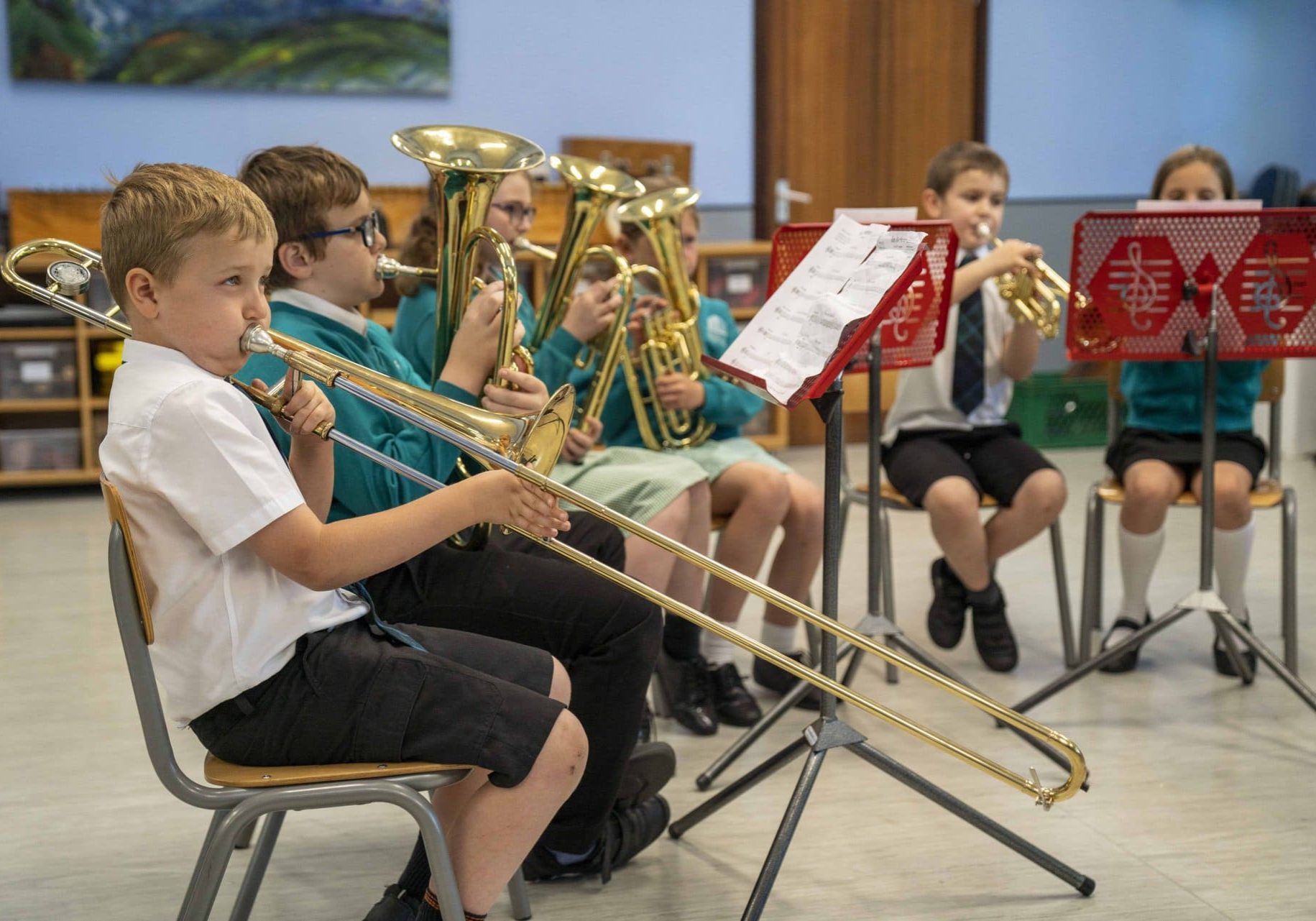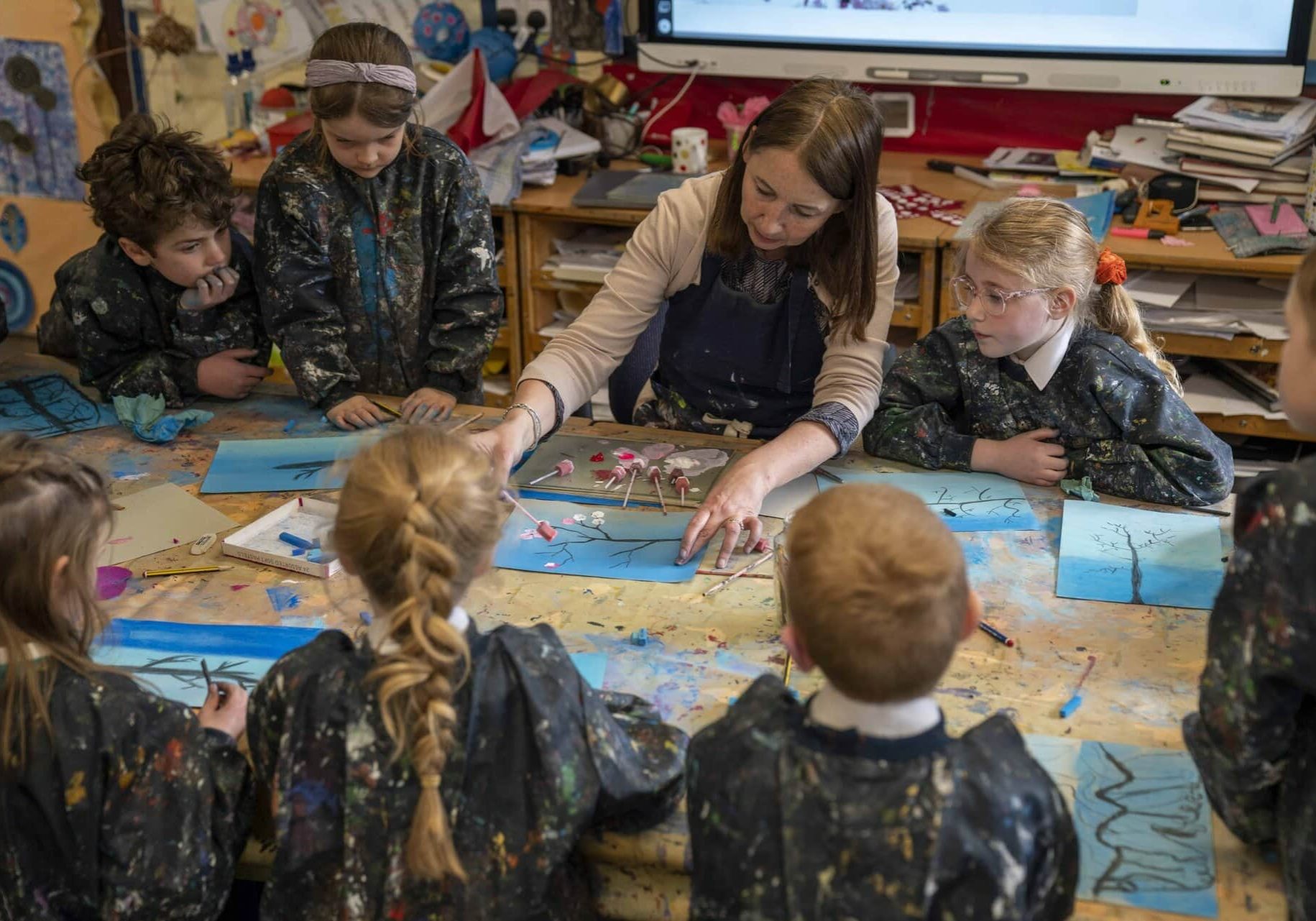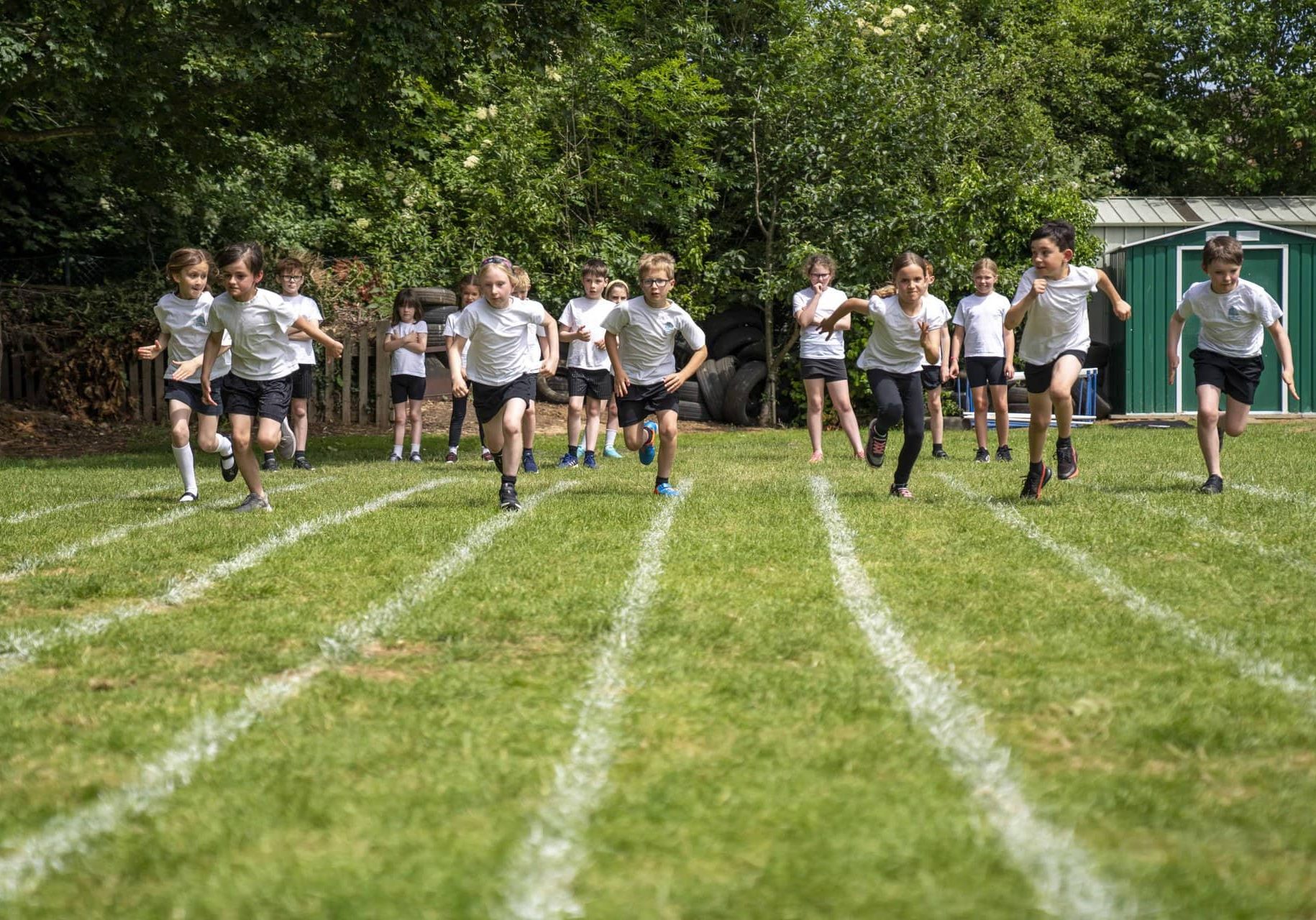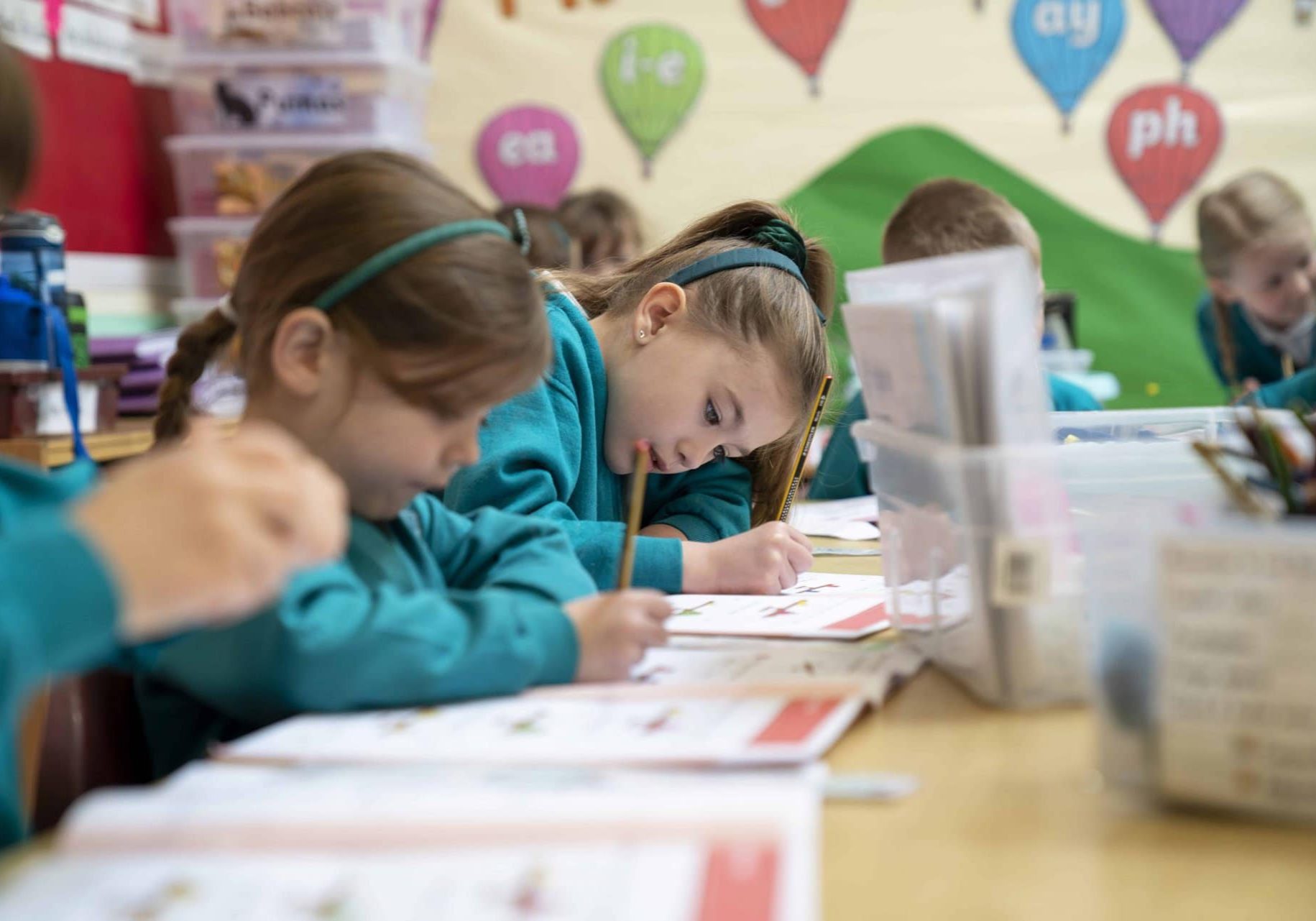In This Section
EYFS
"Play is the work of childhood." Jean Piaget
Curriculum Intent
At Nicholas Hawksmoor Primary School, our EYFS curriculum is designed to provide a strong foundation for children's future learning and development. Our intent aligns with our school's ethos of Quality, Enthusiasm, and Partnership:
- Quality: We aim to deliver high-quality early years education based on the EYFS Framework, focusing on seven areas of learning: Communication and Language, Physical Development, Personal, Social and Emotional Development, Literacy, Mathematics, Understanding the World, and Expressive Arts and Design.
- Enthusiasm: We foster a love for learning through play-based activities and exploration, recognizing that "Play is the work of childhood" (Jean Piaget). Our curriculum is designed to ignite children's curiosity and enthusiasm for learning.
- Partnership: We work closely with parents, carers, and previous settings to ensure a smooth transition and the best possible start for each child. This collaborative approach helps us understand each child's unique needs and starting points.
Our curriculum aims are to:
- Recognize children's prior experiences and build upon them.
- Enable children to develop the characteristics of effective learning: playing and exploring, active learning, and creating and thinking critically.
- Place a strong emphasis on the Prime Areas of learning, particularly Communication and Language, including oracy skills.
- Provide an engaging, text-rich environment that prioritizes reading and offers a wide range of learning experiences.
- Foster the development of the unique child by offering extended periods of play and sustained thinking.
- Ensure all children make at least good progress from their starting points and are well-prepared for the transition to Year 1.
We believe that high-level engagement ensures high-level attainment. Therefore, we provide a curriculum that maximizes opportunities for meaningful cross-curricular links and follows children's interests to foster a lifelong love of learning both in and outside of school.
Implementation
Our approach focuses on delivering a comprehensive, engaging EYFS education that builds knowledge and skills progressively:
- Curriculum Structure: We introduce new themes weekly based on key events and children’s interests to inspire learning while maintaining flexibility. Learning occurs through a balance of child-initiated and adult-directed activities, with timetables adjusted throughout the year to meet changing needs.
- Learning Environment: Our curriculum is planned for both indoor and outdoor classrooms, recognizing the equal importance of learning in both areas. Outdoor learning is a fundamental part of the curriculum experience and ‘Forest School’ activities with a trained leader take place each week. We provide plenty of time for 'exploration' through carefully planned experiences that engage and challenge children within the provision.
- Literacy Focus: Reading is at the heart of our curriculum. We expose children to a range of high-quality texts across different genres, authors, and illustrators. Our approach includes modelled reading and retelling, structured comprehension opportunities, a focus on vocabulary development, and dedicated phonics sessions following our Read, Write Inc programme.
- Mathematics Approach: We follow the Mastering Number Scheme from the National Centre for Excellence in Teaching Mathematics. Our approach includes daily 'Maths jobs’ to develop fluency, revisit key concepts, and address misconceptions. Children develop mathematical thinking through games, tasks, and exploration using concrete manipulatives and pictorial representations.
- Wider Curriculum: Our 'Understanding of the World' and 'Expressive Arts and Design' areas are taught through exciting, purposeful, and contextual activities that build on children's natural curiosity. We encourage the use of subject-specific language and terminology across all areas of learning.
- Inclusion and Support: We provide a range of additional interventions and support for children who may need extra help or challenge. This includes sessions for developing speech and language, social skills, fine motor skills, phonics, and mathematics.
- Assessment and Monitoring: We use ongoing formative assessments, observations, and conversations with children to inform planning and identify next steps. Some observations are shared with parents via Tapestry. We also use specific assessments like the RBA (Reception Baseline Assessment) to establish a baseline for individual needs.
Our implementation strategy reflects our ethos of quality through structured, progressive learning; enthusiasm through diverse, engaging experiences; and partnership through collaboration with families and previous settings.
Impact
The impact of our EYFS curriculum is evident in the following outcomes:
- Progress and Attainment: Children make at least good progress from their starting points across all areas of learning. By the end of Reception, most children achieve the Early Learning Goals, with some exceeding them.
- School Readiness: Children develop the skills, knowledge, and confidence necessary for a smooth transition into Year 1. They are well-prepared to engage with the National Curriculum.
- Love for Learning: Children demonstrate enthusiasm for learning and a natural curiosity about the world around them. They are confident to explore, ask questions, and take on new challenges.
- Communication Skills: Children develop strong communication and language skills, including improved oracy. They can express their ideas clearly and confidently in a range of situations.
- Independence and Resilience: Children show increased independence in their learning and daily activities. They demonstrate resilience when facing challenges and are willing to persevere.
- Social and Emotional Development: Children form positive relationships with adults and peers. They show an understanding of their own emotions and those of others, demonstrating empathy and respect.
- Physical Development: Children develop both fine and gross motor skills, supporting their overall physical development and preparation for writing.
- Foundational Skills: Children acquire key foundational skills in literacy and mathematics, providing a strong basis for future learning.
We assess these impacts through:
- Ongoing observations and assessments, including the EYFSP (Early Years Foundation Stage Profile) completed at the end of Reception.
- Regular monitoring of teaching and learning by SLT and the EYFS leader.
- Discussions with children about their learning experiences.
- Feedback from parents and carers about their child's development.
- Successful transitions into Year 1, with children demonstrating readiness for the next stage of their education.
This comprehensive approach, grounded in our school's ethos of Quality, Enthusiasm, and Partnership, ensures that Nicholas Hawksmoor Primary School provides an EYFS education that not only meets national standards but also nurtures happy, confident, and well-rounded individuals ready for their next steps in learning and life.





